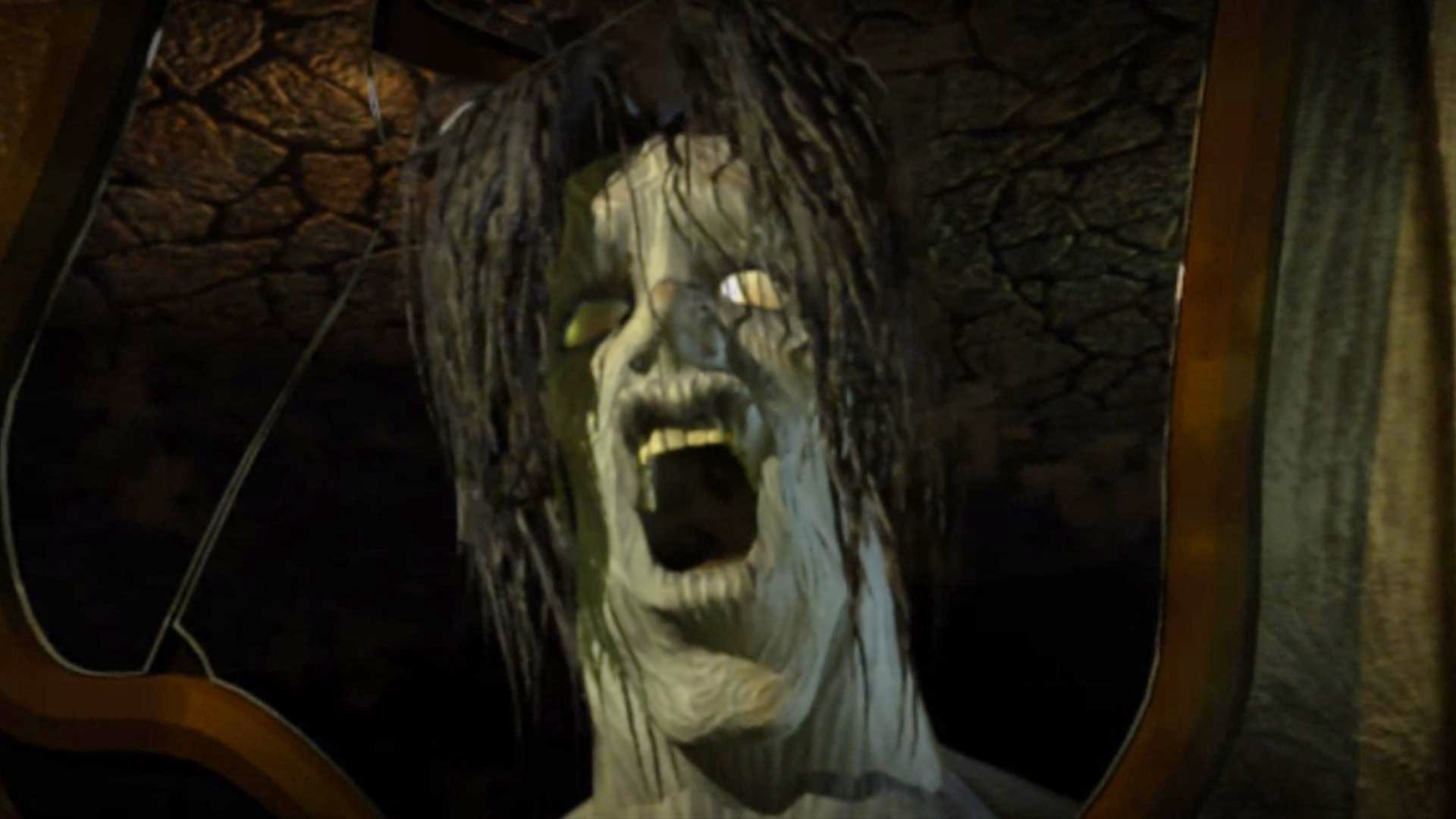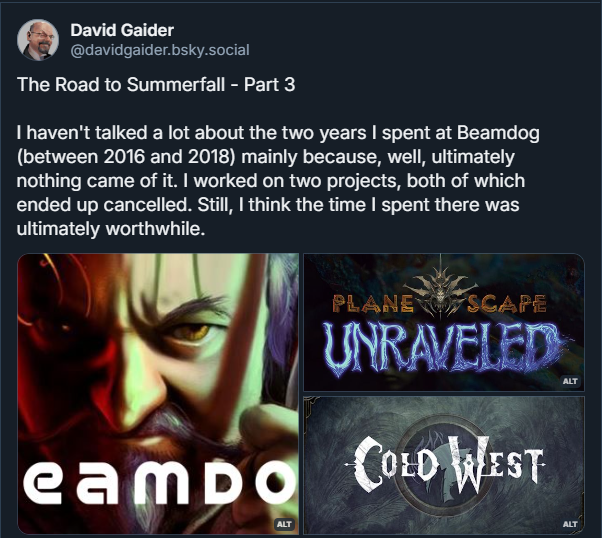
If you need more evidence we live in the worst of all possible worlds, how's this: Beamdog once put Dragon Age creator David Gaider to work on a full-fat sequel to Planescape: Torment—a key inspiration for Disco Elysium, one of the best videogame narratives ever told, and the current #29 on PC Gamer's Top 100—only for the project to die a slow, quiet death because no publisher wanted to throw money at it.
That's according to Gaider himself, who is currently going off on Bluesky about his long career arc that took him from joining BioWare in 1999 to co-founding his own studio, Summerfall, in 2017. Between those two things, Gaider was enlisted by Beamdog founder Trent Oster to serve as creative director at the studio, which you probably know for its enhanced editions of the original Baldur's Gate games and Planescape: Torment.
"[Oster] told me Beamdog was starting to do their own projects," said Gaider. "They were finishing Siege of Dragonspear, an expansion for BG1, but more importantly they were also up to something else: a sequel to Planescape: Torment, for which they had [PS:T lead designer] Chris Avellone on board as a consultant. Now THAT caught my interest."
The original Torment was set in (surprise!) Planescape, a campaign setting for Dungeons and Dragons that chucked out the familiar Tolkienian fantasy stuff you got in BG1 and 2 in favour of dimension-hopping, trope-defying weirdness. Attracted by the potential to "break all the 'standard' rules of CRPGs," Gaider signed up.
Gaider and his team "put together a plan for what ended up being called Planescape: Unraveled, where you played as one of three aspects of Ravel Puzzlewell racing against time to solve the mystery of your own existence." Which sounds like it could have been pretty damn cool, if you ask me.

Ravel Puzzlewell was a key figure in the original Planescape: Torment—she's the incredibly powerful witch who originally stripped the game's protagonist of his mortality, and ended up confined to an interplanar prison by the enigmatic Lady of Pain for, uh, attempting to free the Lady of Pain. It's a weird setting.
Gaider was hot to trot. "It was sharp, it had great NPC's, WotC was so excited about it they were willing to move up their plans for 3rd edition Planescape and include some of the characters and seismic events from the game in the setting reboot." All the stars seemed to have aligned to get a Planescape sequel onto store shelves. And then, well, money.
"The problem? Funding. WotC wasn't in a place to do more than give a stamp of approval, and the publishers we met... well, Trent knows more than I do, but I think there was a perception that Planescape wasn't very successful or commercial. Or maybe they just didn't have confidence in Beamdog, or me."
Beamdog never found a publisher willing to put money where Gaider's mouth was, so "by the end of 2016, we had to put Planescape: Unraveled on the shelf and start something new." That new thing was an "Old West exorcist game" that Gaider had tried to get off the ground back at BioWare. Alas, that one didn't entice publishers either, and it wasn't long before it too ended up shelved and Gaider departed Beamdog for new pastures.
It's a real shame, because the notion of playing as Ravel is an interesting one, but maybe it's not too surprising. The full list of videogames set specifically in D&D's Planescape setting consists of Torment and… no, actually that's it. The closest we ever got to a sequel to the game, in spite of its enduring popularity and acclaim, was inXile's Torment: Tides of Numenera, which jettisoned D&D entirely in favour of Monte Cook's Numenera tabletop setting.
Given that game is now self-published (after being originally published by Techland), I think it's fair to say that 'cerebral, narrative-heavy RPG that's mostly text' is just a tough one to get publishers excited about, even when they're direct sequels to one of the best games of all time.







